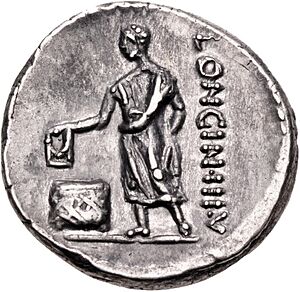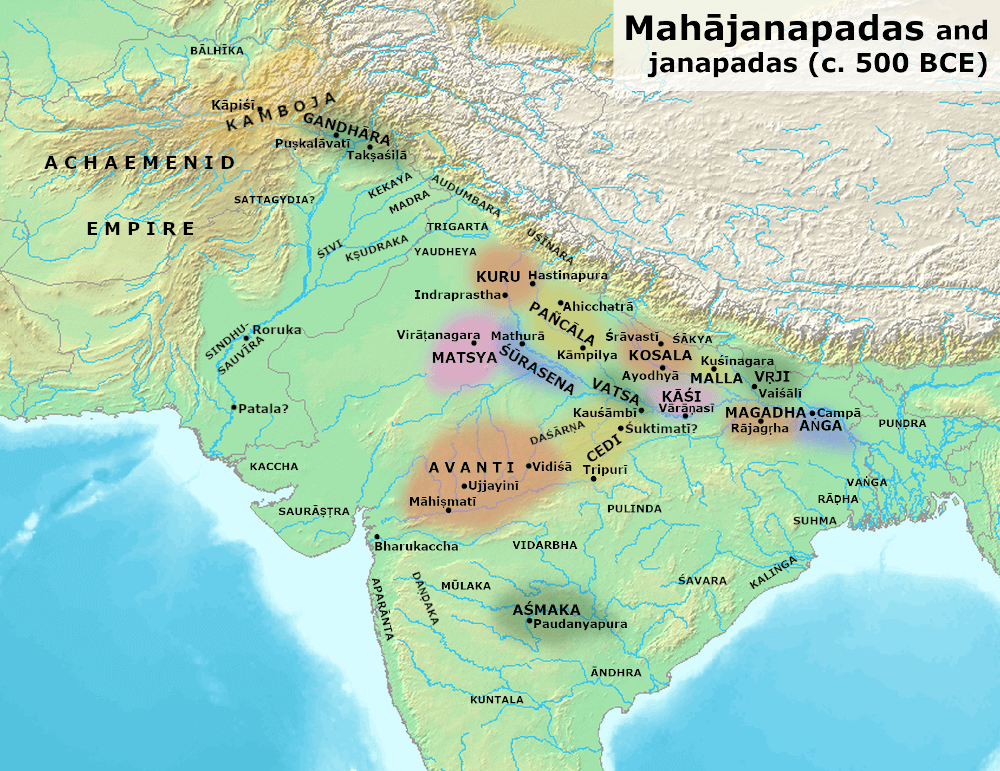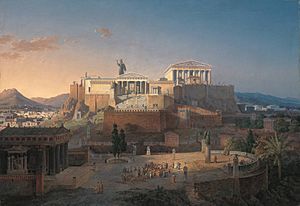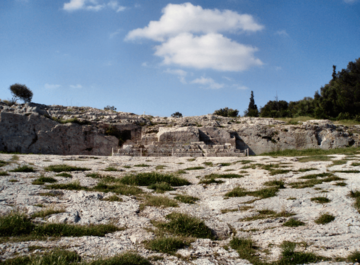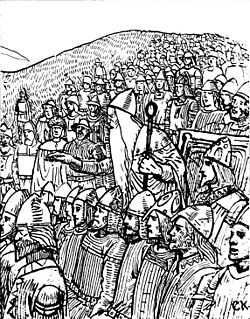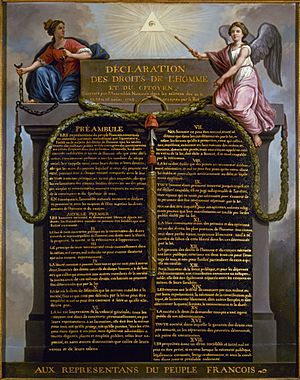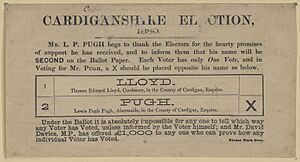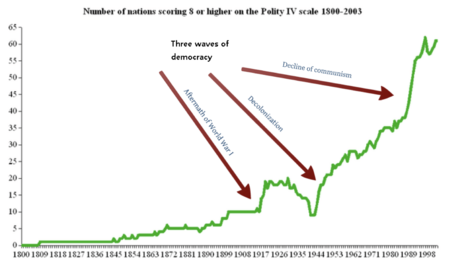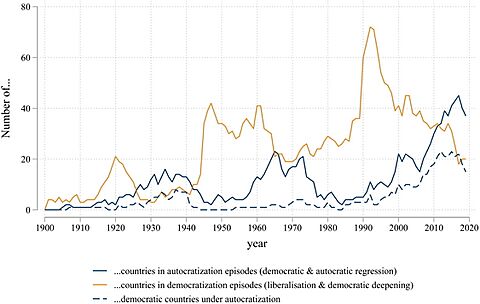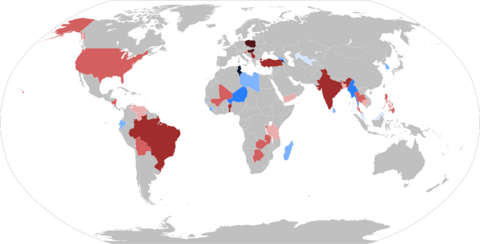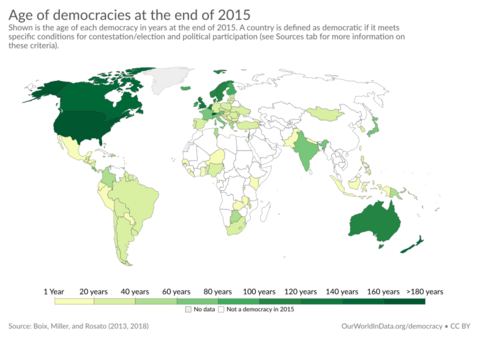History of democracy facts for kids
A democracy is a way of making decisions where everyone involved gets a say. It can be used in a club, a school, or even a whole country. In a democracy, people share power. Modern democracies let citizens get involved in their society. They can also hold their leaders accountable. This means leaders must answer for their actions. Democracy is different from systems where one person (a monarchy) or a small group (an oligarchy) rules everything.
Many people think democracy started with the ancient Greeks. Thinkers in the 1700s looked back at these early ideas. They wanted to create new ways for countries to be governed after kings. These ideas helped democracy become a major way of ruling countries. This change has shaped the world, especially after World War II.
Today, representative democracies try to balance individual rights with the power of the government. They do this through 'social contracts'. These are like agreements that protect citizens' rights. They also limit what the government can do. Citizens get power through the right to vote.
Contents
Ancient Beginnings
Early Forms of Democracy
Even before big cities, some groups of hunter-gatherers had ways of making decisions together. These groups were usually small, around 50 to 100 people. They often made choices by talking until everyone agreed. Sometimes, they used a majority vote. They often didn't have one main leader.
These early forms are sometimes called primitive democracy. They worked well in small villages. People could talk face-to-face. But as communities grew into cities, things became more complicated. Other types of rule, like kingships, became more common in larger cities.
The idea of democracy first came from ancient Athens around 508 BCE. In ancient Greece, many city-states had different governments. Democracy meant "rule by the people." It was different from rule by rich families (aristocracy) or by one person (monarchy or tyranny).
Possible Early Democracies Elsewhere
While Athens is famous for democracy, some scholars think similar ideas appeared in other places. This includes the Near East and Indian subcontinent. These might have happened even before Athens.
Phoenicia
Ancient Phoenicians sometimes used "governing by assembly." This meant important decisions were made by a group. For example, around 1100 BCE, a Phoenician prince called an assembly. This was to solve a problem with pirates. This shows that assemblies helped rule the city of Byblos.
Mesopotamia
Some historians have looked at ancient Sumer, before Babylonia. They found what they call primitive democracy. In early Sumer, kings like Gilgamesh did not have total power. Instead, city-states had councils of elders. They also had groups of "young men" (free men who could fight). These groups had the final say on big issues, like war.
However, not everyone agrees with this idea. Some think it was more about power struggles between kings and nobles. Common people might not have had much real power.
Indian Subcontinent
Another idea for early democracy comes from ancient India. Independent "republics" called saṅghas and gaṇas existed as early as the 6th century BCE. A Greek historian named Diodorus also wrote about democratic states in India.
These groups often had a leader, called a raja. They also had a meeting assembly. This assembly met regularly to discuss important state decisions. In some places, all free men could attend. This group made financial, administrative, and legal decisions. The leader worked with the assembly. The Licchavis had a main ruling body of over 7,000 leaders. The Shakyas, during the time of Gautama Buddha, allowed all men, rich or poor, to join their assembly.
Scholars still debate how democratic these groups truly were. Some see them as democracies because of the assemblies. Others see them as oligarchies or aristocracies. This is because upper classes often controlled the leaders. Also, the strict caste system might have limited true equality.
Sparta

Ancient Greece had many independent city states called poleis. Many were oligarchies. Sparta was a famous Greek oligarchy. But it was also unique. It didn't focus on private wealth. Some scholars even see parts of it as democratic.
Spartan government had four parts:
- Two kings who ruled at the same time. This split their power.
- The gerousia (Council of Elders). This included the two kings. Members had to be over 60 and were elected for life. They usually came from rich families. They proposed new laws.
- The ephors (representatives of citizens). Five ephors were chosen by citizens. They watched over the kings and other officials. They served for one year.
- The ecclesia (assembly of Spartans). Spartans over 30 elected members of the gerousia and ephors. They also approved or rejected laws proposed by the gerousia.
The legendary lawgiver Lycurgus created Sparta's system. He made big changes after a revolt. His reforms focused on equality among citizens, military strength, and simple living. He also wrote down the rules in the Great Rhetra. This was like the world's first written constitution.
Sparta became a strong military power. Its system was admired for its stability. Spartans called themselves Homoioi, meaning "men of equal status." All citizens, rich or poor, had the same education. Spartan women also had more rights than women elsewhere. They could inherit property and get public education.
However, Sparta was still an oligarchy. Individual freedom was limited. People had to live for the state. Also, the gerousia kept most of the power. Sparta's system changed little over time. After winning the Persian Wars, more wealth came in. This made the oligarchic parts even stronger. Sparta eventually lost its power after wars with Athens and Thebes.
Athens
Athens is often called the birthplace of democracy. The word "democracy" comes from Greek words meaning "people" and "power." Many old writings, like those by Plato and Aristotle, talk about Athenian democracy.
Athens started with powerful rich families in the 600s BCE. But this led to problems. The poor were treated badly. People became enslaved to the rich. This caused unrest.
Solon and the Start of Democracy

Around 594 BCE, Athenians asked Solon to help. He was a poet and lawmaker. Solon tried to help both the rich and the poor. He divided Athenians into four groups based on wealth. Each group had different rights and duties.
Solon gave all citizens the right to attend the Ecclesia (Assembly) and vote. The Assembly became the main power. It could pass laws, elect officials, and hear court appeals. A new council, the Boule of 400, prepared the Assembly's plans. Higher jobs were for the two richest groups. Retired officials joined the Areopagus. This group could check the Assembly's actions. Solon's changes stopped Athenians from being enslaved by other Athenians. They also gave political rights based on wealth, not just birth. Solon laid the groundwork for Athenian democracy.
Democracy Under Cleisthenes and Pericles
After Solon, Athens had a period of rule by a tyrant named Peisistratos. After his rule ended in 510 BCE, Cleisthenes made big changes. He reorganized citizens into ten tribes. This helped shift loyalty from families to the state. He also brought in the idea of isonomia, meaning equal rights for all male citizens. This gave more people access to power. During this time, Athenians first used the word "democracy."
Athens then entered its Golden Age. It became a center for art and literature. After winning the Persian Wars, poorer Athenians who fought in the army wanted more say. In the 460s BCE, Ephialtes and Pericles made democracy even stronger. They limited the power of the old council. They also allowed poorer citizens to hold public office. Pericles became a great democratic leader. He described Athenian rule like this:
Its administration favors the many instead of the few; this is why it is called a democracy. If we look to the laws, they afford equal justice to all in their private differences; if no social standing, advancement in public life falls to reputation for capacity, class considerations not being allowed to interfere with merit; nor again does poverty bar the way, if a man is able to serve the state, he is not hindered by the obscurity of his condition. The freedom which we enjoy in our government extends also to our ordinary life.
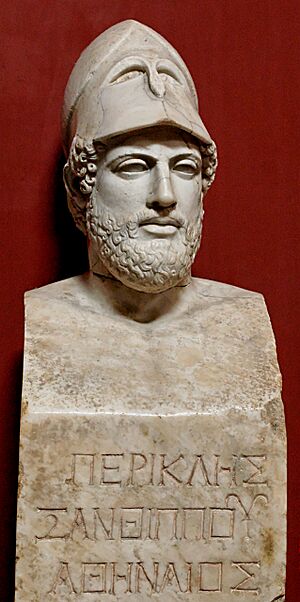
Athenian democracy was based on freedom and equality for citizens. To keep things fair, officials were often chosen by lottery. This meant everyone was seen as equally able to serve. Most officials could only serve once. This stopped anyone from gaining too much power.
Courts were also important. They had many jurors chosen by lot. There were no judges. Jurors had great power to check the government. Citizens were paid a small amount to serve. Only generals and treasurers were elected. This was because they needed special skills or wealth. All male citizens could speak and vote in the Ecclesia. Decisions were made by majority vote. The Boule of 500 carried out these decisions. They were also chosen by lot each year.
Athenian democracy was very "direct." Citizens were deeply involved in running their city. They had many freedoms because their city was independent.
The Birth of Political Philosophy
Athens became a hub for thinkers. Socrates and his student Plato explored the role of individuals in society. Aristotle continued their work. He laid the groundwork for political philosophy. Aristotle studied different types of rule in Greek city-states. He grouped them by how many people ruled: many (democracy), few (oligarchy), or one (tyranny/monarchy). He wrote about the main ideas of democracy:
Now a fundamental principle of the democratic form of constitution is liberty—that is what is usually asserted, implying that only under this constitution do men participate in liberty, for they assert this as the aim of every democracy. But one factor of liberty is to govern and be governed in turn; for the popular principle of justice is to have equality according to number, not worth, and if this is the principle of justice prevailing, the multitude must of necessity be sovereign and the decision of the majority must be final and must constitute justice, for they say that each of the citizens ought to have an equal share; so that it results that in democracies the poor are more powerful than the rich, because there are more of them and whatever is decided by the majority is sovereign. This then is one mark of liberty which all democrats set down as a principle of the constitution. And one is for a man to live as he likes; for they say that this is the function of liberty, inasmuch as to live not as one likes is the life of a man that is a slave. This is the second principle of democracy, and from it has come the claim not to be governed, preferably not by anybody, or failing that, to govern and be governed in turns; and this is the way in which the second principle contributes to equalitarian liberty.
Decline and Revival
Athenian democracy faced challenges. It was twice overthrown during the Pelopponesian War. But it was restored quickly both times. Later, Philip II of Macedon and Alexander the Great took control of Greece. Athens lost its political power. After the Roman conquest in 146 BCE, Athens only handled local matters.
Some thinkers, like Plato and Aristotle, were critical of Athenian democracy. Their ideas influenced later views. For a long time, Sparta's stable government was praised more. But in the 1800s, people started to see Athenian democracy more positively. Today, it's still studied as a way to empower citizens.
Rome

Rome's history helped keep the idea of democracy alive. Romans saved many works from ancient Greece. The Roman way of governing also inspired many thinkers. Modern representative democracies are more like the Roman model than the Greek one.
The Roman Republic
Rome started as a city-state ruled by a king. But in 510 BCE, a group of aristocrats removed the last king. They created a new system. However, there was conflict between the rich families (patricians) and the common people (plebeians). The plebeians wanted clear, written laws.
In 454 BCE, Rome sent officials to Greece to study laws. When they returned, ten men wrote down Rome's old laws. These became the Twelve Tables. They were displayed for everyone to read. By the 300s BCE, plebeians could hold important government jobs.
The Roman system was a "mixed constitution." It had parts like Sparta's:
- Two consuls, like kings, who led the government and the army.
- The Senate, like an aristocracy. It gave advice to officials. It focused on foreign policy and civil administration. Senators had to be wealthy and from noble families.
- The people, through the assemblies. They elected officials, passed laws, and decided on war and peace.
Even though the assemblies had power, they were less powerful in practice. They could only meet if called by an official. They couldn't propose laws or debate. Also, the voting system often favored the rich.
Historian Polybius believed Rome's stability came from each part checking the others. For example, a consul needed the Senate and people to win a war. However, Rome valued order and discipline more than individual freedom. Laws controlled private life, especially for the upper classes.
Rome grew into a large empire. This brought wealth but also problems. Rich landowners bought up land, pushing out small farmers. This led to more conflict between rich and poor. The old system struggled to handle the growing empire. This led to powerful generals taking control in the last century BCE.
Transition to Empire
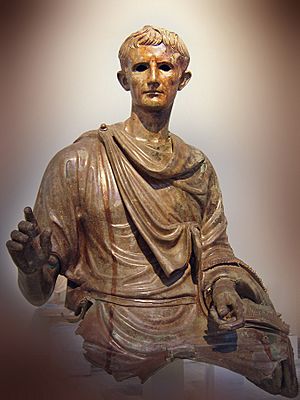
Over time, generals often ignored or overthrew the Senate. They did this to fix problems or gain power. One such general was Julius Caesar. He marched on Rome and took control. But he was assassinated in 44 BCE.
After Caesar's death, his friend Marcus Antonius and adopted son Octavian rose to power. They became very powerful. In 31 BCE, they fought each other. Octavian won. He then took full control. Octavian kept many of the old Roman institutions. But he used his personal power to control all decisions. In 27 BCE, he offered to give up his powers to the Senate. But the Senate refused and gave him the title Augustus ("the revered one"). He avoided being called "king." Instead, he took titles like princeps ("first citizen") and imperator (a military commander's title). This marked the change from the Roman Republic to the Roman Empire.
Democracy in the Middle Ages
Some early forms of shared decision-making appeared in the Middle Ages. These included:
- Germanic Assemblies: Like the thing from the Viking Age.
* The Witenagemot in early England advised kings. * The Märzfeld was a Frankish custom. * In Spain and Portugal, cortes met to discuss kingdoms. The Corts of Catalonia were the first European parliament to officially pass laws. * Tynwald on the Isle of Man claims to be one of the oldest parliaments. * The Althing in Iceland, founded in 930, was an assembly of leaders. Farmers could choose their representative. * The Sicilian Parliament from 1097 was one of the world's oldest parliaments. * The Thing of all Swedes met yearly. The lawspeaker reminded the king that power was with the people. * The Swiss Landsgemeinde were open-air assemblies. * In Norway, there were regional things like Gulating.
- Gopala's Election: In the Pala Empire (8th century), the ruler Gopala was elected.
- Irish túatha: In early medieval Ireland, landowners met in local assemblies called túatha. They approved policies and elected a new "king."
- Ibadi in Oman: From the 8th century, the Ibadi people of Oman chose their leaders through community elections. They believed the ruler needed the people's consent.
- Guilds: In the later Middle Ages, guilds (groups of workers) elected their leaders each year.
- Italian City-States: Cities like Venice and Florence had systems where guilds or powerful families had a say. They were not fully democratic like Athens, but they were important for later democracy.
- Slavic Assemblies: Veche or Wiece were popular assemblies in Slavic countries. In Poland, the wiece became the Sejm (parliament) in 1182. The veche was the highest power in Novgorod and Pskov republics.
- Basque elizate system: Farmholders met to make decisions and elect representatives.
- English and Scottish Parliaments:
* Magna Carta (1215) limited the king's power. It also supported the right to not be jailed unlawfully. * The first representative parliament met in 1265. * People could send petitions to Parliament to complain about problems. * The Habeas Corpus Act 1679 protected people from unlawful imprisonment. * William Penn's Frame of Government of Pennsylvania (1682) gave the colony a representative legislature. * The Bill of Rights 1689 limited the monarch's power. It ensured regular parliaments and free elections. * John Locke's writings (1689) promoted the idea that government needs the people's consent.
Rise of Democracy in Modern Countries
Early Modern Milestones

- Polish-Lithuanian Commonwealth: From the 1500s, the nobility (about 10% of the population) had a "Nobles' Democracy." They elected their king.
- Dutch Republic (1588): Argued that power belonged to the States-General (an assembly), not the monarch.
- Virginia House of Burgesses (1619): The first representative law-making body in the New World.
- Mayflower Compact (1620): An agreement among Pilgrims to form a government based on majority rule.
- Petition of Right (1628): Passed by the English Parliament. It said the king couldn't tax without Parliament's OK. It also stopped arbitrary imprisonment.
- English Civil War (1642–1651): Ideas about political parties and factions began. Soldiers debated political representation.
- Bill of Rights (1689): Limited the king's power and ensured regular parliaments and free elections in England.
18th and 19th Century Milestones
- Great Britain (1707): The first Parliament of Great Britain was formed. The role of the Prime Minister developed.
- Corsican Republic (1755): Had its own constitution.
- New Constitutions (late 1770s): Many new constitutions limited government power. The Polish–Lithuanian Commonwealth's Constitution of May 3, 1791, was called the "first of its kind in Europe."
- The United States:
* Virginia Declaration of Rights (1776): Stated that "All men are created equal." * American Declaration of Independence (1776): Declared that people have rights to "Life, Liberty and the pursuit of Happiness." * United States Constitution (1788): Created a government with elected representatives. It didn't initially define who could vote. * United States Bill of Rights (1791): Added to the Constitution to protect individual freedoms. * First Party System (1790s): Political parties formed, with newspapers and campaigns. * Peaceful transition (1800): Power changed from one party to another peacefully.
- French Revolution (1789–1799):
* Declaration of the Rights of Man and of the Citizen (1789): Declared that "Men are born and remain free and equal in rights." * Universal male suffrage (1792): All men could vote for a short time. * Slavery abolished (1794): In French colonies, but later brought back by Napoleon.
- Haitian Revolution (1791): A successful slave revolt that created a free republic.
- United Kingdom:
* Slave Trade Act (1807): Banned the slave trade across the British Empire. * Great Reform Act (1832): Gave more people the right to vote and better representation. * Slavery Abolition Act (1833): Ended slavery throughout the British Empire.
- Cortes of Cádiz (1810): Representatives from all Spanish provinces met.
- Serbia's first modern constitution (1835).
- Greek Constitution of 1844: Created a parliament.
- Universal male suffrage in France (1848): Re-established after a revolution.
- Revolutions of 1848: Led to democratic constitutions in some European countries.
- Secret ballot: Introduced in Australia (1850s), UK (1872), USA (1892).
- Black Africans given the vote in South Africa (1853).
- USA (1856): Property requirements for voting were removed for most white men.
- 15th Amendment (1870): Prohibited denying voting rights based on race.
- New Zealand (1893): First nation to give women the right to vote.
- South Australia (1894): First place to allow women to run for parliament.
- Persian Constitutional Revolution (1905): First parliament in the Middle East.
- UK Parliament Act (1911): Limited the power of the unelected House of Lords.
The Secret Ballot
Today, we expect our votes to be private. But in the 1800s, this was a big debate. Some thought people should not hide their vote.
The first secret ballot systems were used in Australia in 1856. One method involved crossing out unwanted candidates. Another, more like today's system, had voters mark their preferred candidate.
Waves of Democracy in the 20th Century
After First World War, democracy spread in Europe. Finland had full democratic rights and universal suffrage by 1906. Russia had a brief democracy in 1917. But the Great Depression in the 1930s hurt democracies. Many countries turned to dictators.
- Women's Suffrage:
* United Kingdom: Women over 30 could vote in 1918. All women could vote in 1928. * United States: The 19th Amendment (1920) gave women the right to vote. * France: Women got the right to vote in 1944.
- Indian Citizenship Act (1924): Gave full U.S. citizenship to America's indigenous peoples.
After World War II
World War II helped democracy spread in Western Europe. Many countries became representative governments. However, many countries in Eastern Europe became Soviet-controlled.
Japan moved towards democracy in the 1920s. After World War II, it adopted a new constitution. Elections were held in 1946.
Decolonization and Civil Rights
World War II also weakened colonial powers. Many colonies gained independence.
- Philippines (1946): Gained independence from the United States and became a democratic republic.
- Israel (1948): Declared independence and became a democracy in the Middle East.
- India (1950): Became a democratic republic after gaining independence in 1947. It is now the world's largest liberal democracy.
- Most former British and French colonies became independent by 1965. Many adopted democratic systems.
- United States Civil Rights Movement:
* Civil Rights Act of 1964: Enforced the 15th Amendment, which prohibits voting discrimination based on race. * Voting Rights Act of 1965: Further protected voting rights for all, including Native Americans. * 24th Amendment: Ended poll taxes, which were used to stop African Americans from voting. * 26th Amendment (1971): Lowered the voting age to 18.
Late Cold War and Post-Soviet Democracy
New waves of democracy spread in the 1970s. Right-wing dictatorships in Southern Europe fell. In the late 1980s, communist states in Eastern Europe also became democracies.
By the end of the 20th century, the number of democracies grew a lot. In 1900, there were almost no liberal democracies with universal suffrage. By 2000, 62% of the world's nations were such democracies.
Democracy in the 21st Century
By Region
- Iraq (2003): The US-led invasion led to a new constitution and elections.
- Arab Spring (2011): Led to democracy in Tunisia. Egypt had a temporary democracy.
- Africa: Democratization has slowed since 2005. But in 2016, the president of the Gambia was forced to leave after losing an election. In 2018, dictatorships in Sudan and Algeria fell.
- Asia:
* Myanmar (Burma) made some changes in 2011 to allow voting rights. * Bhutan began moving towards a constitutional monarchy in 2005. * Maldives had democratic reforms and elections in 2008, but these were undone in 2018. * Thailand's military has overthrown elected governments twice. * Cambodia's government has become a one-man dictatorship.
- Europe:
* Ukraine has moved towards more democracy since 2014. It has had peaceful transfers of power. * Poland and Hungary have seen "illiberal democracies." Their ruling parties are seen as undermining democratic rule.
Overall Trends
Since 2006, the number of democratic states has grown. But many of these are weaker democracies. This makes them fragile.
As of 2020, authoritarianism (rule by one person or a small group) and populism are increasing. Fewer people live in democracies than at the end of the Cold War. This "Democratic backsliding" is due to things like economic inequality, social unhappiness, and government manipulation. Large parts of the world, like China and Russia, have strengthened authoritarian rule.
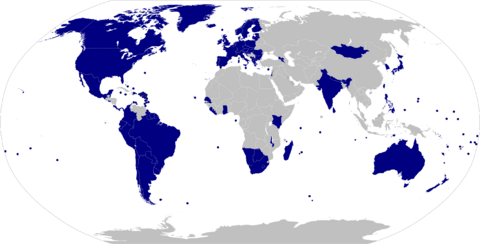
The United States is often seen as the oldest continuous democracy. New Zealand has the longest history of universal suffrage (everyone being able to vote).
New Ideas in Democracy Today
Some new ideas are being tried to make democracy better. One is called deliberative democracy. This is where citizens and their representatives meet to discuss ideas.
- Citizens' assemblies: These groups are formed by choosing people randomly. They have been used in Canada and the Netherlands to discuss election changes. Iceland used them for bigger changes to its constitution.
See also
 In Spanish: Historia de la democracia para niños
In Spanish: Historia de la democracia para niños
 | Lonnie Johnson |
 | Granville Woods |
 | Lewis Howard Latimer |
 | James West |


